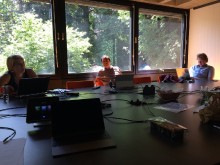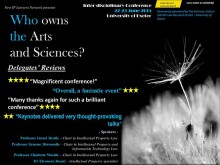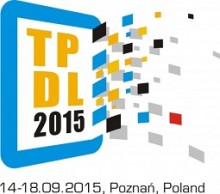-
Join the
Digital Meets Culture
Open Newsroom! If you have interesting news and events to point out in the field of digital cultural heritage, we are waiting for your contribution.
If you have interesting news and events to point out in the field of digital cultural heritage, we are waiting for your contribution.
-
Free text
-
-
Upcoming events
-

Step into the world of history and heritage through stunning 3D collections that bring the past to life. From pre-cinema artifacts in Girona to everyday objects and cultural emblems from the ancient oppidum of Bibracte in Burgundy, these collections … Continue reading →
 The deadline for submitting photographic projects for the AIPAI PHOTO CONTEST has been extended
The deadline for submitting photographic projects for the AIPAI PHOTO CONTEST has been extendedThe deadline for submitting photographic projects for the 3rd edition of the AIPAI PHOTO CONTEST, the photography contest organized by the Italian Association for Industrial Archaeological Heritage ETS, has been extended to October 31. The contest is organized in collaboration with DICEA … Continue reading →
 Brussels, November 13th and 14th, 2024
Brussels, November 13th and 14th, 2024On November 13th and 14th, OpenLab.brussels is hosting the international conference “Creating Knowledge through Participatory Research” in Brussels. The OpenLab.brussels is a joint venture of ULB-VUB dedicated to participatory research. It aims to mobilize our academic community and public or private stakeholders … Continue reading →
Area: digital heritage

The 3rd Annual Conference of ICA (“Archives: Evidence, Security and Civil Rights Ensuring trustworthy information”) will be held on 29-29 September in the beautiful city of Reykjavik, Iceland. It will address themes that are essential for archives in modern society, the role and function of archives and their importance for individuals, governments and businesses. Continue reading

The international conference on Electronic Publishing (ElPub) approaches its 20th anniversary. Elpub 2015, held in Valletta from 1 to 3 September, is the 19th edition of the conference and it will continue the tradition, bringing together academics, publishers, lecturers, … Continue reading
The first intermediate releases of the PREFORMA conformance checkers are now available for download on the Open Source Portal section of the PREFORMA website. Join the community to help us shaping our future memory standards! Continue reading

Prof. Fred Truyen of KU Leuven recently published an interesting article on his Digital Culture blog, under the title “Europeana Space Photo pilot: Innovate your photographic heritage … and your future business!” The article tells the commitment the E-Space project is devoting through its Photo Pilot to demonstrating a range of possibilities offered by apps, Europeana API’s and a multitude of tools developed by the open source community to come up with innovative models involving historical and present-day photography, with monetising potential and investment appeal. Continue reading

The Content Space will then directly link to the Technical Space currently under development. The materials of the Content Space are curated by the IPR experts of Exeter University and, as a part of the Content Space, the associate partner Open Knowledge is building the Open Content Exchange Platform. Continue reading

Europeana Space acknowledges the key role of digital cultural heritage to enhance education learning and training since the very beginning of the project. A dedicated task on education and training material is foreseen in the project planning and led by … Continue reading

by Catherine Cummings, Research Fellow (RICHES), University of Exeter From the shape of guitars, fashion brands, parody, dance, disability and re-mixing to museum collections, digitisation, data-mining and folklore, this interdisciplinary conference addressed the many varied and complex relationship between Intellectual … Continue reading

by Sarah Wassermann, SPK On 22nd July 2015, the Institute for Museum Research – Stiftung Preußischer Kulturbesitz (SPK) went to the Museum of European Cultures and the Ethnological Museum for a very special “photoshoot” with quiet but very interesting models. … Continue reading

by Rosemary Cisneros, Coventry University Europeana Space and RICHES projects were presented at the Tenth International Conference on the Arts in Society which took place at Imperial College London from the 22nd– 24th of July. Each year, the International Conference … Continue reading

The International Conference on Theory and Practice of Digital Libraries (TPDL) constitutes a leading scientific forum on digital libraries that brings together researchers, developers, content providers and users in the field of digital libraries. TPDL 2015 is organised by Poznań Supercomputing and Networking Center and will be held in Poznań, Poland, on September 14-18, 2015. EARLY REGISTRATION CLOSES ON 31ST OF JULY! Continue reading























